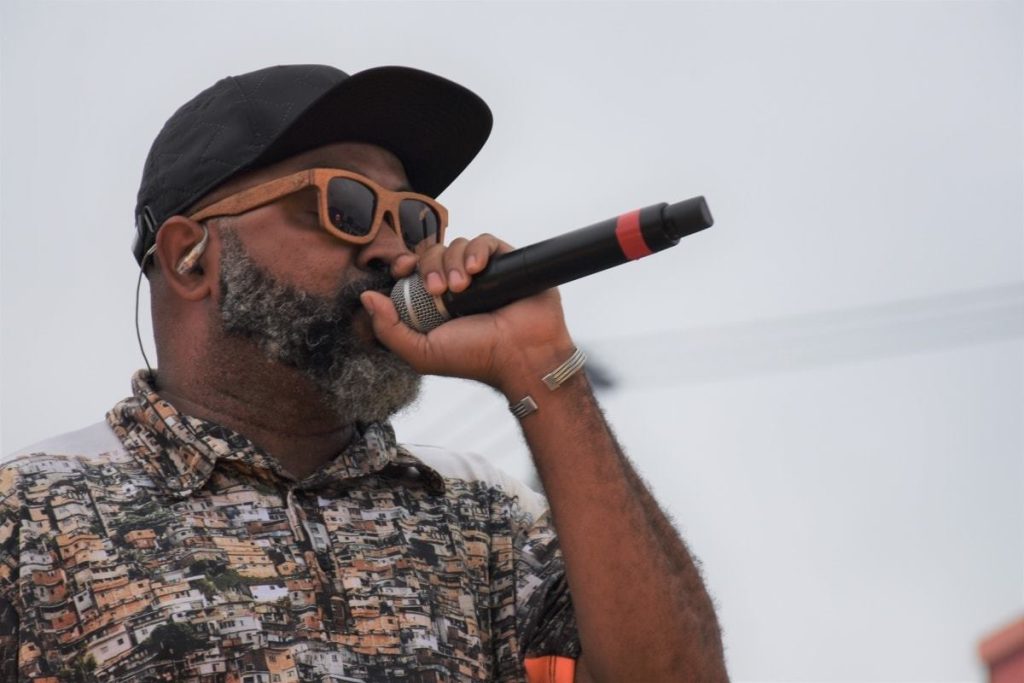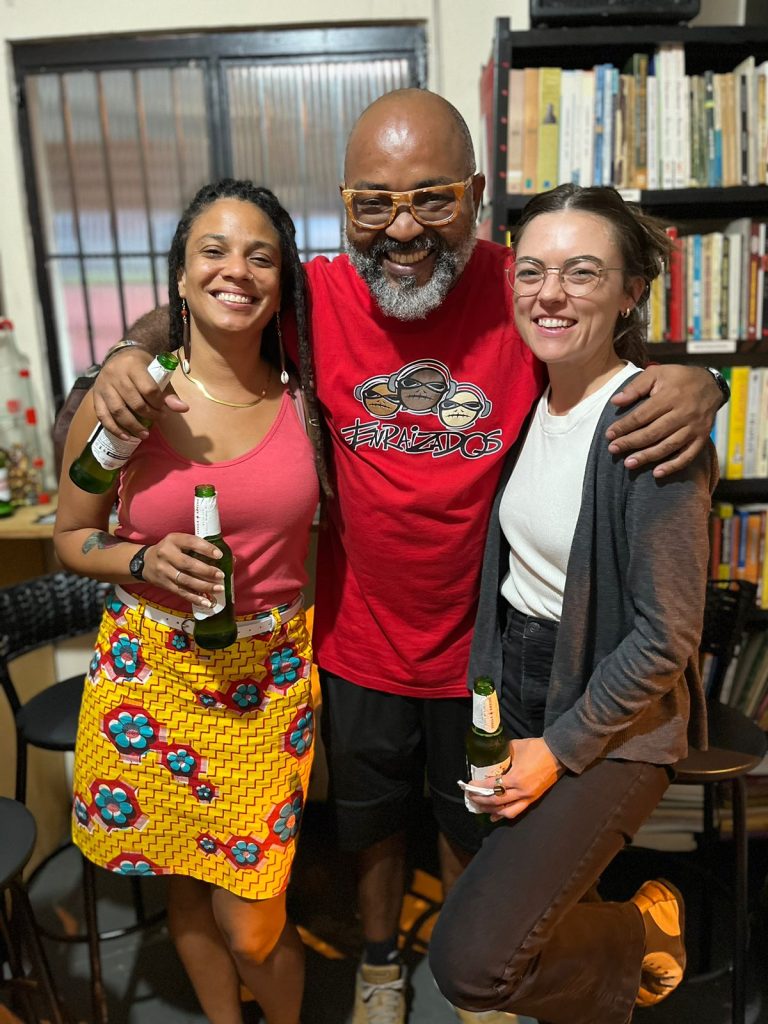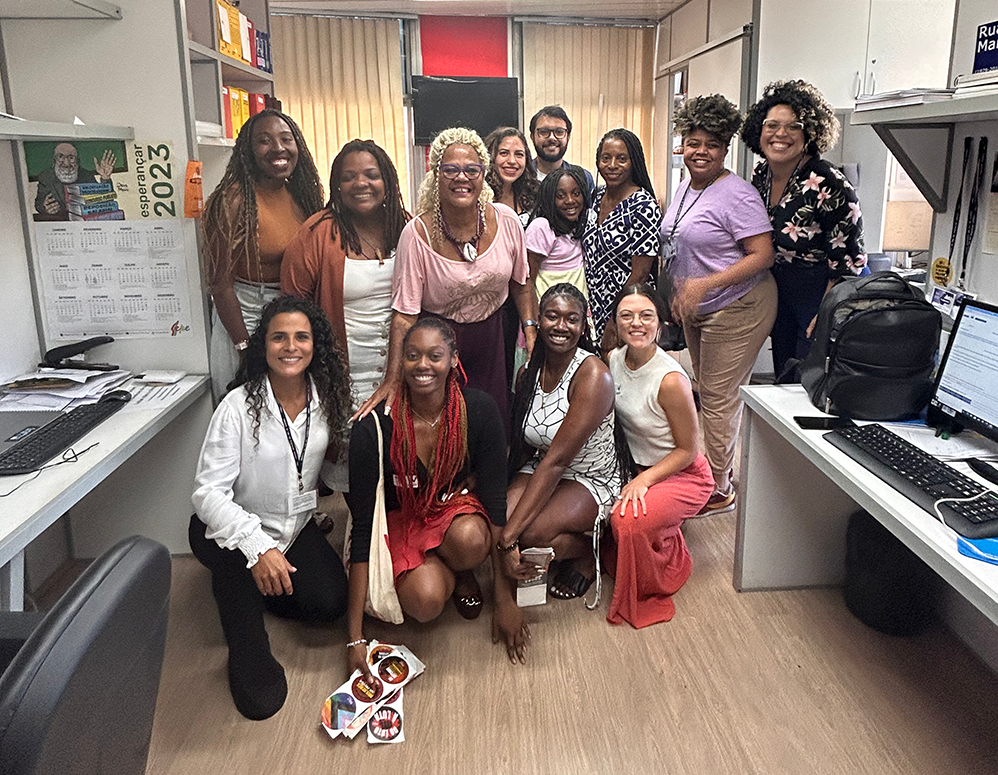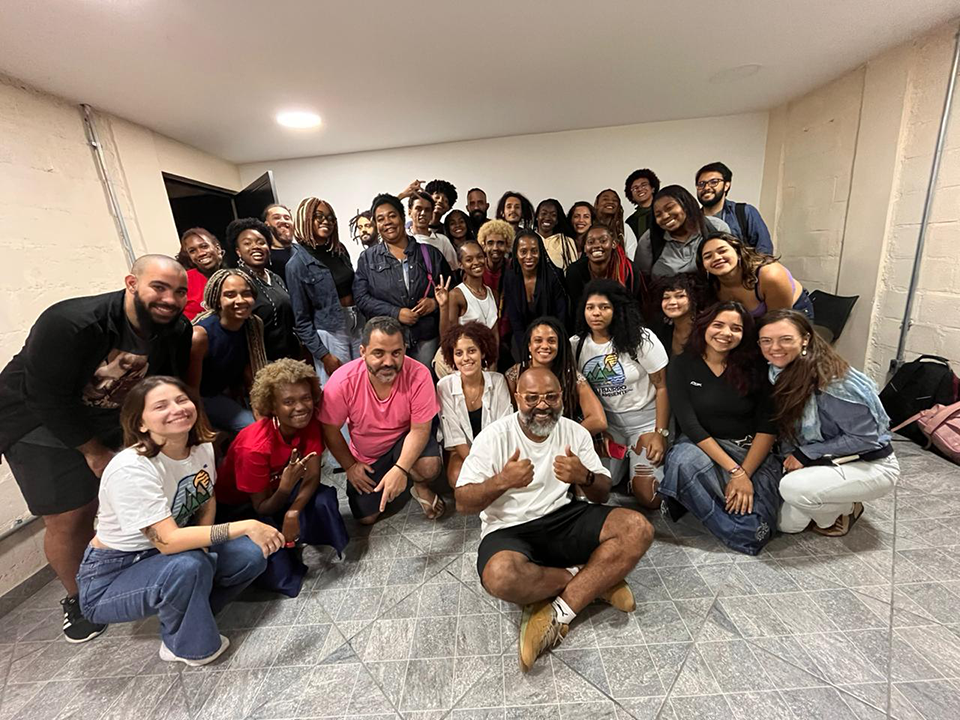From the Bass Connections website
Background
Since the early 2000s, the community organization Instituto Enraizados (Institute of the Rooted) has promoted racial, social and political awareness through hip hop, dance, and visual and media arts on the urban periphery of the city of Rio de Janeiro, Brazil. Located in the city of Nova Iguaçu in the Baixada Fluminense, Enraizados hosts regular slam poetry events, a reading library, media production facilities and a college preparatory exam course. It is a beacon of hope, awareness and empowerment to the youth of the Baixada.
The Baixada Fluminense, or Rio Lowlands, is home to four million residents, two thirds of whom are African-descended and poor or working class. The region has a high concentration of young people who face not only poverty but racism, classism and stigmatization.
Enraizados was founded by Dudu de Morro Agudo (i.e., Dudu from the Morro Agudo neighborhood), a multifaceted Black Brazilian rapper. His trajectory in hip hop goes back to the 1990s when the musical genre first emerged in Brazil as an expression of class and racial identity and a protest against the stigmatization of marginal and peripheral populations.
Over a quarter century, Dudu has transitioned between cultural production and grassroots activism. His work in public schools and in outreach within and beyond his community, specifically his artistic performances and participatory “RapLab” events, have been marked by the development of ground-breaking pedagogical approaches focused on inspiring young people and encouraging them to rethink their roles and become actors in, not simply reactors to, a world that often appears stacked against them.

Project Description
This project brings together scholars, artists and students from Duke, North Carolina Central University (NCCU) and the Federal Rural University in Rio de Janeiro to investigate a community-based pedagogical practice that reaches Black and poor youth in urban Brazil by building a democratic culture of rights and citizenship in a profoundly authoritarian, racist and classist society. Combining reading, field work and practice, the team will investigate and inventory the educational techniques developed by Instituto Enraizados to encourage defense of rights and active citizenship. This work builds on a long-standing collaboration, including a prior Bass Connections project on higher education expansion in the Baixada Fluminense.
First, team members will explore and the intellectual, political and cultural origins of Enraizado’s organizing practice. Next, they will examine the life circumstances of youth in the Baixada Fluminense, including those youth who attend the local federal university, during field research in August 2023. Team members will closely observe the deployment of the RapLab method by documenting the organization’s poetry slams, informal and organized social events, college preparatory classes and online discussions.
Upon their return, team members will experiment with applying the RapLab method in classroom and community settings in Durham. Ultimately, the team expects to create intellectually compelling products — academic and nonacademic — to bring what they have learned about Afro-Brazilian history to wider United States and Brazilian audiences.




